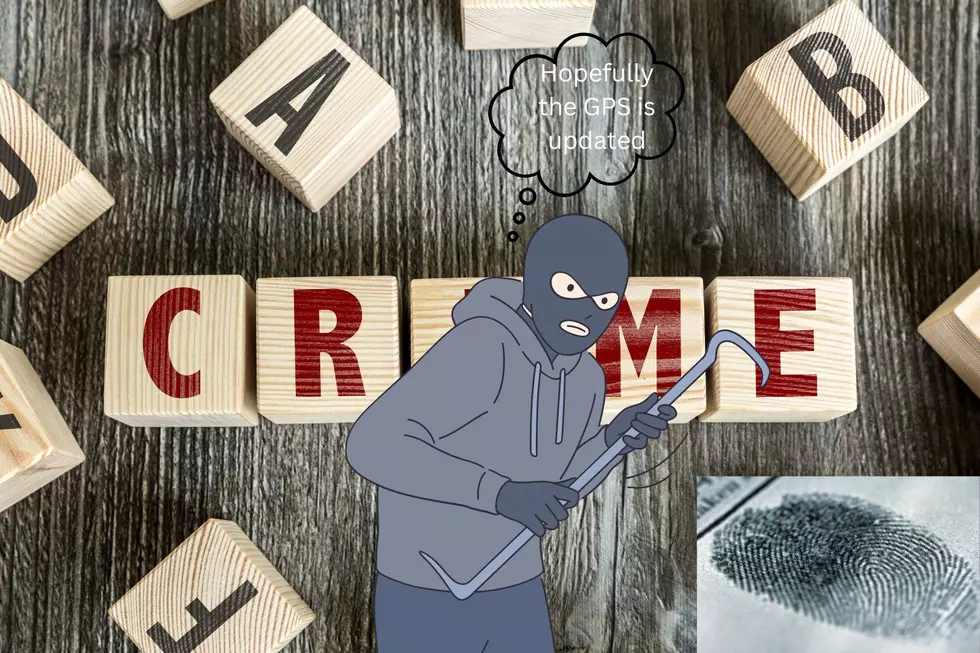
Courtlin Shares Her Story for Mental Health Awareness Month
In case you haven't heard, the month of May is also known as Mental Health Awareness Month. The National Alliance on Mental Illness (NAMI) says that they use the month to, "fight stigma, provide support, educate the public and advocate for policies that support people with mental illness and their families." If you're a person that doesn't personally experience any sort of mental illness or isn't close to someone who does, then understanding it can be a bit difficult. For me, mental illness is something I've encountered since I was very young.
Many of you know this already, but back when I was 8-years-old, my father committed suicide in our family home. He was a loving, intelligent, and dedicated individual, but he struggled with serious depression and alcoholism. I don't remember much about him since I was so young when everything happened, but I do remember watching my dad turn into a person that I didn't feel like I knew. It took me a very, very long time to come to terms with the fact that taking his own life didn't mean he was selfish or that he didn't love my brother and me, but that he was sick and he needed help. Every day I wish things had happened differently and that I somehow could've done something to change the outcome, but, unfortunately, time doesn't work that way.
Since my dad passed away, I have spent a lot of time with people who suffer from some sort of mental illness, and I have had a personal struggle, as well. This blog isn't a cry for sympathy, but just a hope that my personal experience is something that others can relate to and see that they're not alone. Being openly vulnerable is not something that comes easy to me, but if sharing my experiences can help just one person, it's worth it. For as long as I can remember, I have suffered from Generalized Anxiety Disorder (GAD). According to the Anxiety and Depression Association of America, GAD affects 6.8 million adults in any given year. The article states:
"Generalized Anxiety Disorder (GAD) is characterized by persistent and excessive worry about a number of different things. People with GAD may anticipate disaster and may be overly concerned about money, health, family, work, or other issues. Individuals with GAD find it difficult to control their worry. They may worry more than seems warranted about actual events or may expect the worst even when there is no apparent reason for concern."
My anxiety is something that I've learned to live with, but it's not always easy. It has impacted so many aspects of my life, causing me to miss out on a lot of different experiences. Most importantly, it has caused me to have a severe lack of self-worth. My anxiety sneaks up on me and whispers in my ear that I'm not good enough. That I'll never be good enough, or smart enough, or pretty enough, or successful enough. That nobody could possibly ever love me, so why even bother with a relationship? It has caused me to become the worst type of perfectionist. A control-freak in the biggest sense of the word. Worrying about every. single. thing. is my full-time job. It keeps me up at night. It causes me to have severe tremors that appear whenever they feel like it. My anxiety has made me physically ill. I've spent many days and nights just laying on my bathroom floor, sick from just the thoughts in my head. Sometimes I wonder what I would be like if it wasn't a part of me.
I've learned to manage my anxiety as best as I can without medication, but not every day is a success. For me, keeping busy is the most effective solution. I do crosswords, sudoku, jigsaws, and every other puzzle I can get my hands on. Sometimes I color or work on little projects. I've even learned to play the guitar. The best thing for me, though, is exercise. Out of running, Jiu-Jitsu, kickboxing, and yoga, yoga is the most helpful. I firmly believe that every person should try yoga at least once, but especially people who deal with mental illness. There's nothing else like it.
The number one thing I want you to take away from this blog is that, if you have some sort of mental illness, you don't have to go through it alone. Talking to people about these sorts of issues can be difficult because of the stigma. I've been told I'm "crazy" and "dramatic" and that I "overreact," more times than I can possibly count, but I have found people who don't think those things about me. They love and support me, even if they don't understand all the things going on in my brain. Sometimes it's still hard for me to ask them for help because I don't want to be "difficult," but the very worst thing you can do is keep it all inside. Even if you feel like there's nobody out there who cares, I promise you there is.
If you made it this far, thanks for sticking with my super long blog. I hope that one day, talking about this stuff won't be considered so taboo. If somebody you care about reaches out to you, just listen and take them seriously because you could be saving a life.
If you're looking for some support, you can visit NAMI's website HERE.
More From 98.1 KHAK

![Courtlin Spends Her 33rd Birthday Touring Nashville [GALLERY]](http://townsquare.media/site/675/files/2024/05/attachment-3916b601-2cc9-4980-875f-60402cc50e00.jpg?w=980&q=75)


![Iowa Glamping Tents To Take Advantage of This Summer [PHOTOS]](http://townsquare.media/site/675/files/2024/05/attachment-Untitled-design-63.jpg?w=980&q=75)




